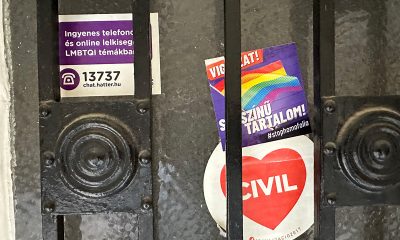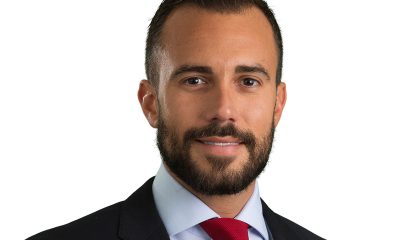News
European court rules religion cannot justify anti-gay discrimination
Four British Christians claimed unfair job discrimination because of their beliefs

The European Court of Human Rights on Tuesday ruled religion cannot justify discrimination against same-sex couples. (Photo by CherryX via Wikimedia Commons)
The European Court of Human Rights on Tuesday ruled religious beliefs cannot justify discrimination against same-sex couples.
The tribunal in Strasbourg, France, ruled against two British Christians who claimed their employers unfairly discriminated against them because of their opposition to relationship recognition for gays and lesbians and homosexuality.
Registrar Lillian Ladele claimed the Borough of Islington outside London unfairly disciplined her because she refused to officiate civil partnership ceremonies for same-sex couples after the United Kingdom’s civil partnership law took effect in 2005. Gary McFarlane accused the Relate Federation, an English counseling service, of firing him in 2008 because he said he may object to providing sex therapy to gay and lesbian couples because of his religious-based opposition to homosexuality.
“We welcome the ECHR’s ruling,” Relate Chief Executive Ruth Sutherland said in a statement. “We believe that it is further endorsement that Relate acted in an appropriate manner and fully in compliance with the law in the case regarding Gary McFarlane. The ruling supports our view that Relate acted properly and that it was Mr. McFarlane who was in breach of his agreed terms and conditions of employment. For Relate, this case has always been about protecting the right that every Relate client has to impartial, unbiased and empathetic counseling and sex therapy in line with our charitable aims.”
The court also ruled against a nurse who claimed she lost her job at an English hospital because she refused to remove her necklace with a cross. British Airways employee Nadia Eweida received €32,000 in damages after the airline suspended her for wearing a cross necklace to work.
“Today’s judgment is an excellent result for equal treatment, religious freedom and common sense,” Shami Chakrabarti, director of Liberty, a British human rights group, said in a statement. “Nadia Eweida wasn’t hurting anyone and was perfectly capable of doing her job whilst wearing a small cross. She had just as much a right to express her faith as a Sikh man in a turban or a Muslim woman with a headscarf.”
The Religion News Service reported that Alliance Defending Freedom, an American anti-gay organization, said “Christian employees should not be singled out for discrimination,” but categorized the court’s decision to reject the other three cases as “extremely disappointing.”
LGBT rights advocates in the U.K. and across Europe quickly applauded the decision.
“With this ruling, the court has established that freedom of religion is an individual right,” Sophie in ‘t Veld, vice-president of the European Parliament’s LGBT Intergroup, said in a statement. “It is emphatically not a collective right to discriminate against LGBT people, women, or people of another faith or life stance. Religious freedom is no ground for exemption from the law. The court showed conclusively that the principle of equality and equal treatment cannot be circumvented with a simple reference to religion.”
Ben Summerskill, chief executive of the British LGBT advocacy group Stonewall, agreed.
“Today’s judgment rightly confirms that it’s completely unacceptable in 2013 for public servants to pick and choose who they want to serve on the basis of sexual orientation,” he said. “Gay people contribute over £40 billion annually to the cost of public services in this country. They’re entitled to nothing less than equal treatment from those services, even from public servants who don’t happen to like gay people.”
The court’s ruling coincides with the expected introduction of a bill in the British Parliament in the coming weeks that would extend marriage rights to same-sex couples in England and Wales. Scottish lawmakers are expected to consider a similar measure this year.
French legislators on Jan. 29 will begin to debate a proposal that would extend marriage and adoption rights to same-sex couples in France. More than 350,000 people marched through the streets of Paris on Sunday in opposition to the bill.
COC Netherlands, a Dutch LGBT advocacy group, said the European Court of Human Rights’ decision “clears the way” to repeal the exemption to the country’s 2001 same-sex marriage law that allows civil servants to refuse to marry gays and lesbians.
“Now that even the European Court rules against civil servants that refuse to marry gay couples, the way to ending this phenomenon in the Netherlands has been cleared,” COC Netherlands President Tanja Ineke told the Washington Blade. “We call on the Dutch government to take measures to end this phenomenon immediately and put an end to this long lasting debate.”
Tamás Dombos of the Hungarian LGBT advocacy group Háttér noted to the Blade that the Constitutional Court of Hungary has ruled registrars cannot legally discriminate against couples based on their sexual orientation. The country’s domestic partnership law took effect in 2009, but a new constitution with an amendment that defines marriage as between a man and a woman took effect last January.
“We welcome the decision, although the reasoning of the court is quite moderate claiming that national authorities have the power to settle the clash between the two competing claims (non-discrimination and freedom of religion,)” Dombos said in reference to the European Court of Human Rights decision. “So it is questionable whether the decision can be used later to fight national decision that prioritize religious freedom instead.”
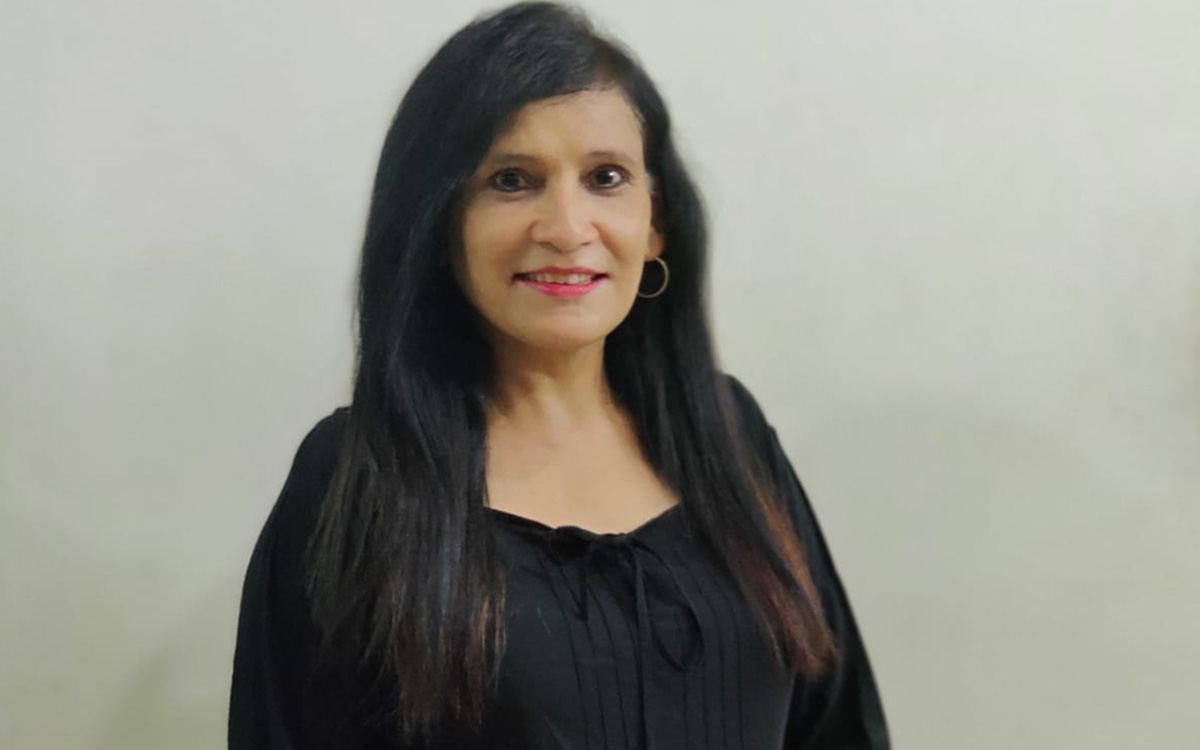
Amid heatwaves in the Indian capital of New Delhi, the world’s biggest election is raising the temperature even higher.
The temperature in the Indian capital on the morning of April 18 reached 107 degrees, and the sun blazed like a furnace. In the political corridors, however, the sweat wasn’t just from the heat, but from the fervent preparation for and in anticipation of the election results.
The Bharatiya Janata Party, the current ruling party, aggressively prepared for the 2024 general election months ago but the other regional and national parties still seem to be preparing while the election has started in the country.
The Washington Blade traveled to New Delhi and witnessed the political party’s campaign and preparations.
Home Minister Amit Shah, representing the BJP, was aggressively campaigning in Ahmedabad and Gandhinagar in Gujarat state. BJP National President Jagat Prakash Nadda was campaigning in Assam state.
The Blade interviewed Barkha Trehan, a political activist in New Delhi. She said that while various political parties in India address transgender and women’s issues in their campaign rhetoric, the Indian National Congress fails to translate its promises into action at the grassroots level.
“Political parties, especially the Congress party in the country, have talked and written enough in their election manifesto, but in last many years they have done nothing,” Barkha told the Blade. “In the last 10 years, we have seen that whatever Bharatiya Janata Party (BJP) says or has written in their election manifesto, we have seen that work done on the ground level. Let’s say it is a women’s issue or transgender community issue, or any other issues like infrastructure issues, everything is visible.”
Barkha said that discussing an issue and taking tangible action on it are distinct endeavors.
She emphasized the BJP’s efforts at the grassroots level, whether concerning trans issues or other matters, deserve recognition. The BJP, according to her, has undertaken numerous initiatives for the trans community that skill development programs and providing loans for startups.
“BJP wants to work for all without any discrimination,” Barkha told the Blade. “They want to create a good image of our country in the world, but the Congress party always pulls down the fame. They always go abroad and discredit the country by talking negative all the time. They think this is the only way to win election in India, but this won’t work out for them.”
Talking about trans issues, Barkha said Prime Minister Narendra Modi has met people from the trans community. She told the Blade that he is trying to motivate the trans community to take advantage of employment opportunities.
“Before Modi, nobody used to look at the transgender community,” said Barkha. “No one used to talk about them. When the prime minister’s video went viral on the internet and television while he had a conversation with the transgender community, other people started and felt inspired to work for the transgender community and talk to them.”
Barkha told the Blade these things send a message to the trans community that there are people who are listening and who will always stand by it.
She noted the trans community has always faced discrimination, neglect, and abuse in India. This political outreach, according to Barkha, sends a strong message that the trans community is as important as anyone else, they have the same value as any other citizens in the country, and they deserve a better life. She told the Blade trans people can make money when they can learn new skills, and they will have self-confidence and self-respect when they can earn a living.
Discrimination based on gender identity remains commonplace in India
India’s trans community has suffered discrimination for many years.
An openDemocracy report notes 80 percent of trans Indians are either engaged in sex work or begging. India in 2019 passed a law, Transgender Persons (Protection of Rights) Act, with aims to protect the rights of trans people, their welfare, and matters connected therewith and incidental thereto.
The Indian government and BJP in 2022 came up with a socialist scheme for trans people. Support for Marginalized Individuals for Livelihood and Enterprise is a program to support trans people who are engaged in begging. It provides them access to medical facilities, counseling, education, skill development, and economic linkages with the support of state governments and local urban bodies along with volunteer and community-based organizations.
The Congress in Telangana state was recently accused of disrespecting the trans community when Revanth Reddy, the Congress party’s sitting chief minister, sent anti-trans slurs that targeted the state’s opposition party.
The Blade reached out to the Congress party’s office in New Delhi, but it denied the interview request.
BJP’s position on LGBTQ issues questioned
The Blade while in New Delhi also visited the Aam Aadmi Party’s headquarters.
Despite the scorching sun overhead, Delhi residents sought refuge from the sweltering temperatures. The Blade, amid the election fervor and campaign hustle, interviewed Aam Aadmi Party spokesperson Preeti Sharma Menon. She said the BJP is regressive and seeks to intrude into a person’s bedroom, dietary choices, and other aspects of their personal lives.
“If BJP comes back to power, the party will keep doing what it is doing now, not supporting LGBTQ rights,” said Menon. “I think, there is no doubt in the LGBTQ community that one cannot have BJP in power and live safely. If we want to give equal rights to every citizen of this country, then only the Indian National Developmental Inclusive Alliance is the only chance.”
She said the Aam Aadmi Party always tries to give LGBTQ people a chance, but the party in this general election has few seats (in parliament) for which to fight because it is part of the opposition alliance.
“We always think if you want the change, the LGBTQ community must have a representation in the parliament,” said Menon. “So, we always try to make LGBTQ community in the country politically active.”
Ankush Kumar is a reporter who has covered many stories for Washington and Los Angeles Blades from Iran, India and Singapore. He recently reported for the Daily Beast. He can be reached at [email protected]. He is on Twitter at @mohitkopinion.
The White House
Judy Shepard to receive Presidential Medal of Freedom
Nancy Pelosi is also among this year’s honorees
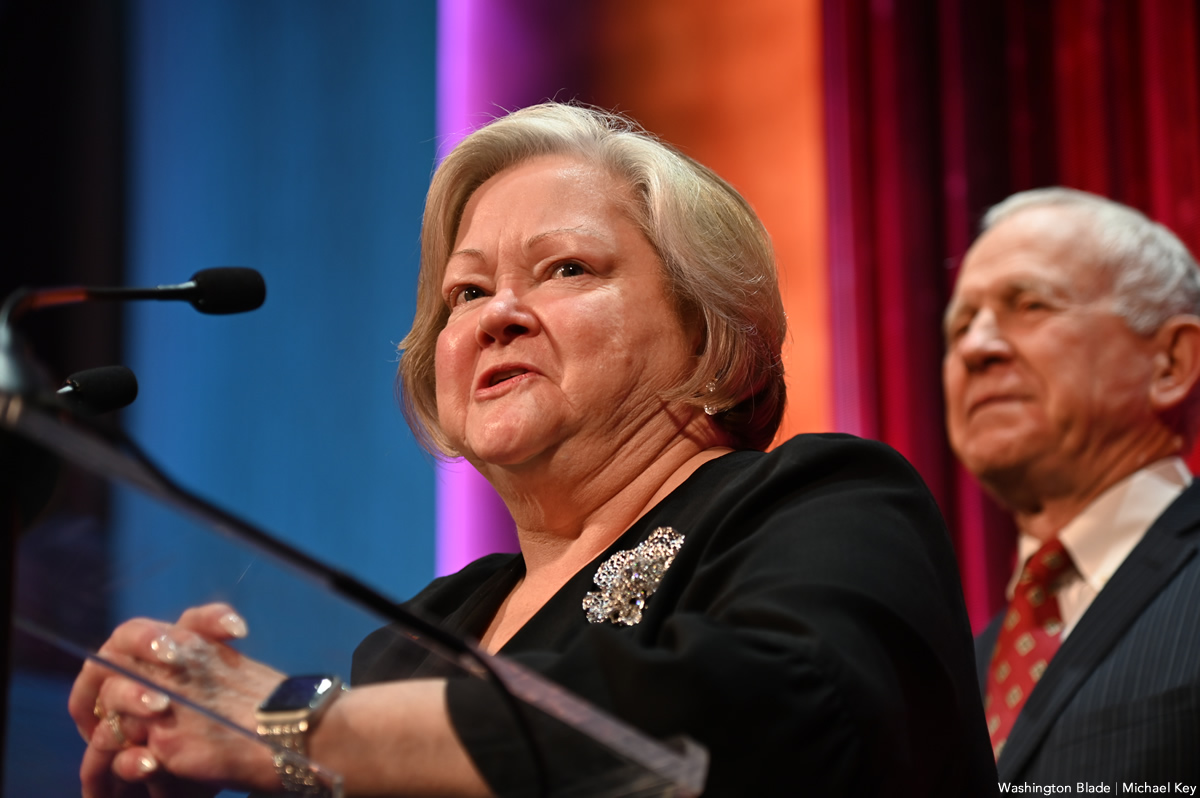
Beloved LGBTQ advocate Judy Shepard is among the 19 honorees who will receive the Presidential Medal of Freedom, the highest civilian award in the U.S., the White House announced on Friday.
The mother of Matthew Shepard, who was killed in 1998 in the country’s most notorious anti-gay hate crime, she co-founded the Matthew Shepard Foundation with her husband Dennis to raise awareness about anti-LGBTQ violence.
The organization runs education, outreach, and advocacy programs, many focused on schools.
Shepard was instrumental in working with then-President Barack Obama for passage of the landmark Matthew Shepard and James Byrd Jr. Hate Crimes Prevention Act in 2009, which was led in the House by then-Speaker Nancy Pelosi (D-Calif.), who will also be honored with a Presidential Medal of Freedom during the ceremony on Friday.
Also in 2009, Shepard published a memoir, “The Meaning of Matthew: My Son’s Murder in Laramie, and a World Transformed,” and was honored with the Black Tie Dinner Elizabeth Birch Equality Award.
Other awardees who will be honored by the White House this year are: Actor Michelle Yeoh, entrepreneur and former New York Mayor Michael Bloomberg, Jesuit Catholic priest Gregory Boyle, Assistant House Democratic Leader Jim Clyburn (D-S.C.), former Labor and Education Secretary and former U.S. Sen. Elizabeth Dole (R-N.C.), journalist and former daytime talkshow host Phil Donahue, World War II veteran and civil rights activist Medgar Evers (posthumous), former Vice President Al Gore, civil rights activist and lawyer Clarence B. Jones, former Secretary of State and U.S. Sen. John Kerry (D-Mass.), former U.S. Sen. Frank Lautenberg (D-N.J.) (posthumous), Olympic swimmer Katie Ledecky, educator and activist Opal Lee, astronaut and former director of NASA’s Johnson Space Center Ellen Ochoa, astronomer Jane Rigby, United Farm Workers President Teresa Romero, and Olympic athlete Jim Thorpe (posthumous).
Africa
Senegalese NGO claims new president discussed LGBTQ rights with top EU official
Jamra Ong Islamique demands government expedite anti-LGBTQ law
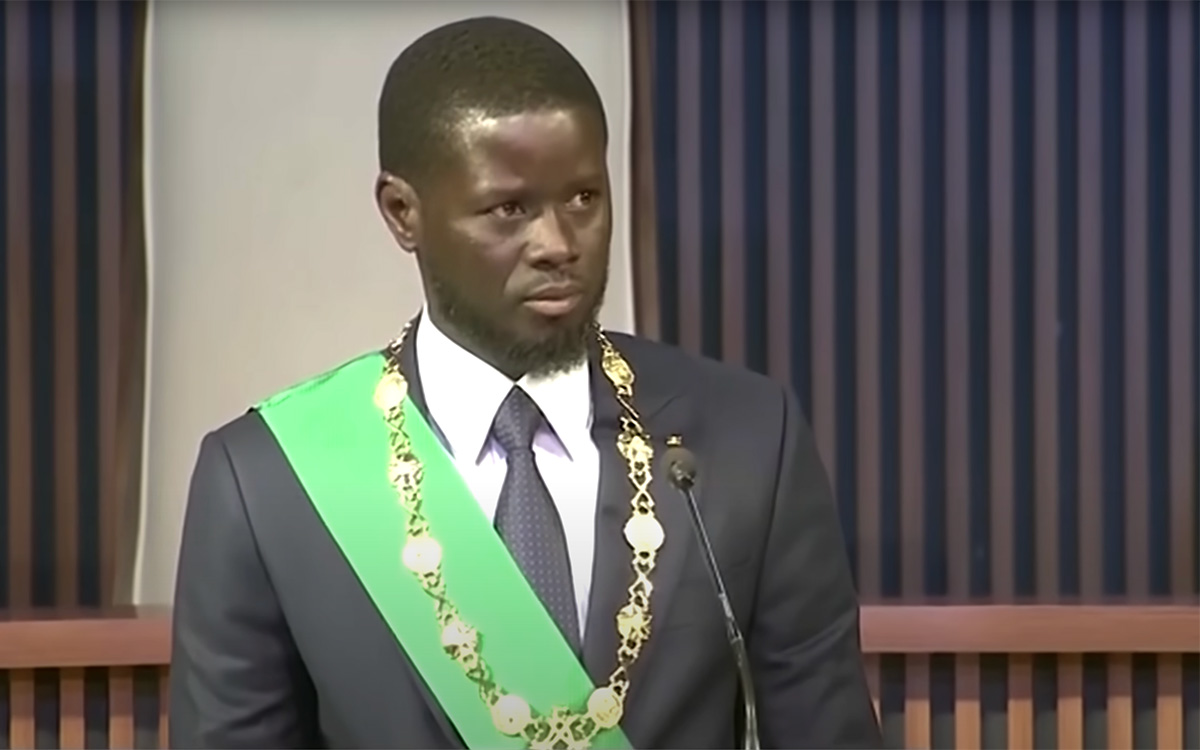
A Senegalese NGO has called on the government to expedite the process of enacting an anti-LGBTQ law after the country’s new president met with a top EU official.
Jamra Ong Islamique made the call during a press conference last Wednesday after newly elected Senegalese President Bassirou Diomaye Faye met with European Council President Charles Michel.
Mamae Makhtar Gueye of Jamra Ong Islamique claimed the meeting between the two dignitaries involved an acknowledgment of LGBTQ rights in Senegal. Gueye said Michel is an LGBTQ ally who wants to change Senegal’s cultural customs that do not condone LGBTQ rights.
“His ardent proselytism for the expansion of LGBT ideology could not leave Jamra indifferent,” said Gueye. “Countries including Gabon, Central African Republic, and Mauritius, amongst others, that underestimated the nuisance of these propagandists of homosexuality paid dearly for it because these global lobbyists ended up legalizing this abomination, so beware.”
Gueye, however, has received a lot of backlash and has been accused of not raising the same sentiments during the tenure of former President Macky Sall, who also met with Michel.
“Did he come as a defender of the LGBT cause or as a European official? Did he come to talk about LGBT rights or partnership agreement between the European Union and Senegal?,” asked Ahmadou Diaw, a Senegalese academic. “Mr. Gueye should know when to alert and when to shut up.”
Cheikh Maï Niang, a social commentator, described Jamra as a “useless organization” that is focused on restricting the freedom of the Senegalese people.
“They are absolutely good for nothing apart from eating the taxpayer’s money,” said Niang. “Where is the democracy we cry about everyday? Seems like they are here to restrict the freedom of the Senegalese people.”
“Not everyone is interested in religion,” added Niang. “We wasted too much time with these useless things. Let’s talk about developing the country. People should live their lives in the manner they want.”
Jamra has previously made proclamations against the LGBTQ community.
The organization in February — before Senegal’s presidential election that took place on March 24 — accused the EU Electoral Observation Mission to Senegal of wanting to indoctrinate Senegalese people with their pro-LGBTQ narrative.
Senegal does not have a law that specifically criminalizes those who identify as LGBTQ or advocate for them. Article 319 of the country’s penal code criminalizes consensual same-sex sexual relations with a fine and between one and five years in prison.
Some Senegalese lawmakers have sought to increase the prison sentence to 10 years for anyone convicted of engaging in homosexuality. These efforts thus far have not been successful.
Samm Jikko Yi (Together for the Safeguarding of Values), an Islamic lobby group that includes many organizations, in 2022 organized an anti-LGBTQ demonstration in Dakar, the country’s capital. Protesters called for harsher penalties for Senegalese who identify as LGBTQ and/or advocate for LGBTQ rights.
The Washington Blade in 2022 noted LGBTQ people have suffered physical and sexual abuse while in prison.
Senegal’s deep religious roots, which are largely Islamic, have contributed to the lack of tolerance of LGBTQ people in the country. This reality has prompted LGBTQ Senegalese to either flee the country or remain in the closet.
Media reports indicate there are fewer bars, clubs and other places where LGBTQ people can freely socialize.

